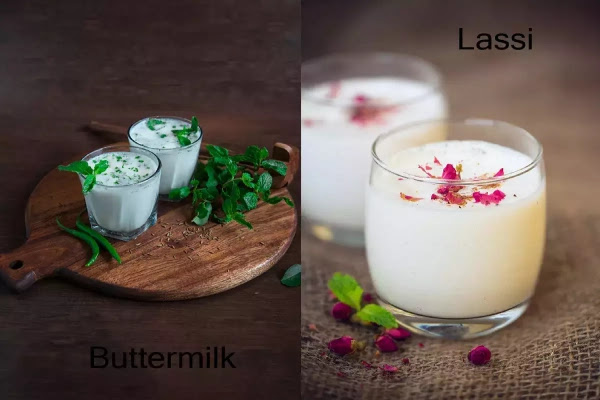Featured
- Get link
- X
- Other Apps
Honey – The Golden Goodness
Honey, the sweet nectar produced by bees, has been cherished by humans for centuries. This golden goodness not only tantalizes our taste buds but also offers a myriad of health benefits & plays a crucial role in our ecosystems. In this exploration of honey, we will delve into its rich history, the fascinating process of honey production, its diverse uses, and the vital role bees play in our world.
A Sweet Journey Through History:
The story of honey dates back to ancient times, with
evidence of its consumption found in ancient Egyptian tombs. Honey was not only
a sweetener but also held cultural and medicinal significance. In ancient
Greece, honey was considered the food of the gods, and the famous philosopher
Aristotle wrote about beekeeping methods. Across different cultures and
civilizations, honey has been a symbol of sweetness, wealth, and even
immortality.
The Bee's Labor of Love:
The production of honey is a fascinating process that begins
with the hard work of bees. Honeybees collect nectar from flowers using their
specialized tube-like tongues and store it in their stomachs. Enzymes in the
bees' stomachs then begin to break down the compound sugars in the juice into
simpler sugars. When the bees profit to the hive, they pass the partially
digested nectar to other worker bees through a process of regurgitation and
digestion. This process continues until the nectar becomes honey, which is then
stored in honeycomb cells.
Inside the hive, bees fan the honeycomb with their wings,
helping to remove excess moisture and thicken the honey. The result is the
golden, viscous substance that we know and love. Beekeepers carefully harvest
honey, ensuring that enough is left behind to sustain the hive. This delicate
balance between human and bee needs is crucial for the well-being of both.
Nature’s Sweet Medicine:
Beyond its delicious taste, honey has been used for its
medicinal properties for centuries. In traditional medicine, honey has been
employed to treat wounds & infections due to its antimicrobial properties.
Its ability to promote healing & reduce inflammation makes it a natural
remedy for various ailments. Today, honey is still used in some medical
settings for wound care, showcasing its enduring relevance in the field of
health.
Additionally, honey is known for its soothing effect on sore
throats and coughs. A sincere cup of tea with honey is a timeless home remedy
passed down through generations. The natural sugars in honey can also provide a
quick energy boost, making it a popular choice among athletes for a pre-workout
snack.
Culinary Delights:
In the kitchen, honey is a versatile ingredient that adds
depth & complexity to a variety of dishes. Its unique flavor profile,
influenced by the types of flowers visited by the bees, ranges from delicate
and floral to robust and earthy. Honey can be drizzled over yogurt, used as a
glaze for meats, or incorporated into dressings and sauces.
The art of pairing honey with different cheeses has become a
culinary trend, highlighting the exquisite combination of sweet and savory
flavors. Honey enthusiasts explore the nuances of honey varieties, much like
wine connoisseurs savor the complexity of different vintages.
Preserving Biodiversity:
While honey takes center stage on our tables, the role of
bees in our ecosystems is equally significant. Bees, as pollinators, play a
crucial part in the reproduction of flowering plants. They facilitate the
transfer of pollen between flowers, enabling the plants to produce fruits and
seeds. This process is not only essential for the plants themselves but also
for the countless species that depend on them for sustenance.
The decline in bee populations, attributed to factors such
as habitat loss, pesticide use, and climate change, poses a thoughtful threat
to global biodiversity. Recognizing the importance of bees, efforts are being
made worldwide to promote bee-friendly practices, protect pollinator habitats,
& raise awareness about the importance of preserving these vital insects.
Challenges and Future Prospects:
While honey is a timeless delicacy, the beekeeping industry
faces challenges that could impact its future. Colony Collapse Disorder, a
phenomenon where entire bee colonies mysteriously disappear, has been a cause
for concern. Pesticides, parasites, and habitat loss are among the factors
contributing to this issue.
Sustainable beekeeping practices, public awareness
campaigns, and research into bee health are critical for ensuring the continued
production of honey and the well-being of bees. Supporting local beekeepers who
prioritize ethical and sustainable practices can make a positive impact on both
the environment and the quality of honey produced.
Conclusion
Honey, the golden goodness created through the collaboration of bees and nature, is a testament to the beauty and interconnectedness of our world. Its rich history, diverse uses, and medicinal properties make it a true treasure. As we savor the sweetness of honey, let us also reflect on the importance of protecting the bees that make this golden elixir possible. In the delicate dance between humans and nature, the honeybee plays a vital role, reminding us to cherish and preserve the golden goodness that sustains us all.
- Get link
- X
- Other Apps
Popular Posts
Refreshing Cold Soup Steps To Chill On Hot Summer Days
- Get link
- X
- Other Apps


